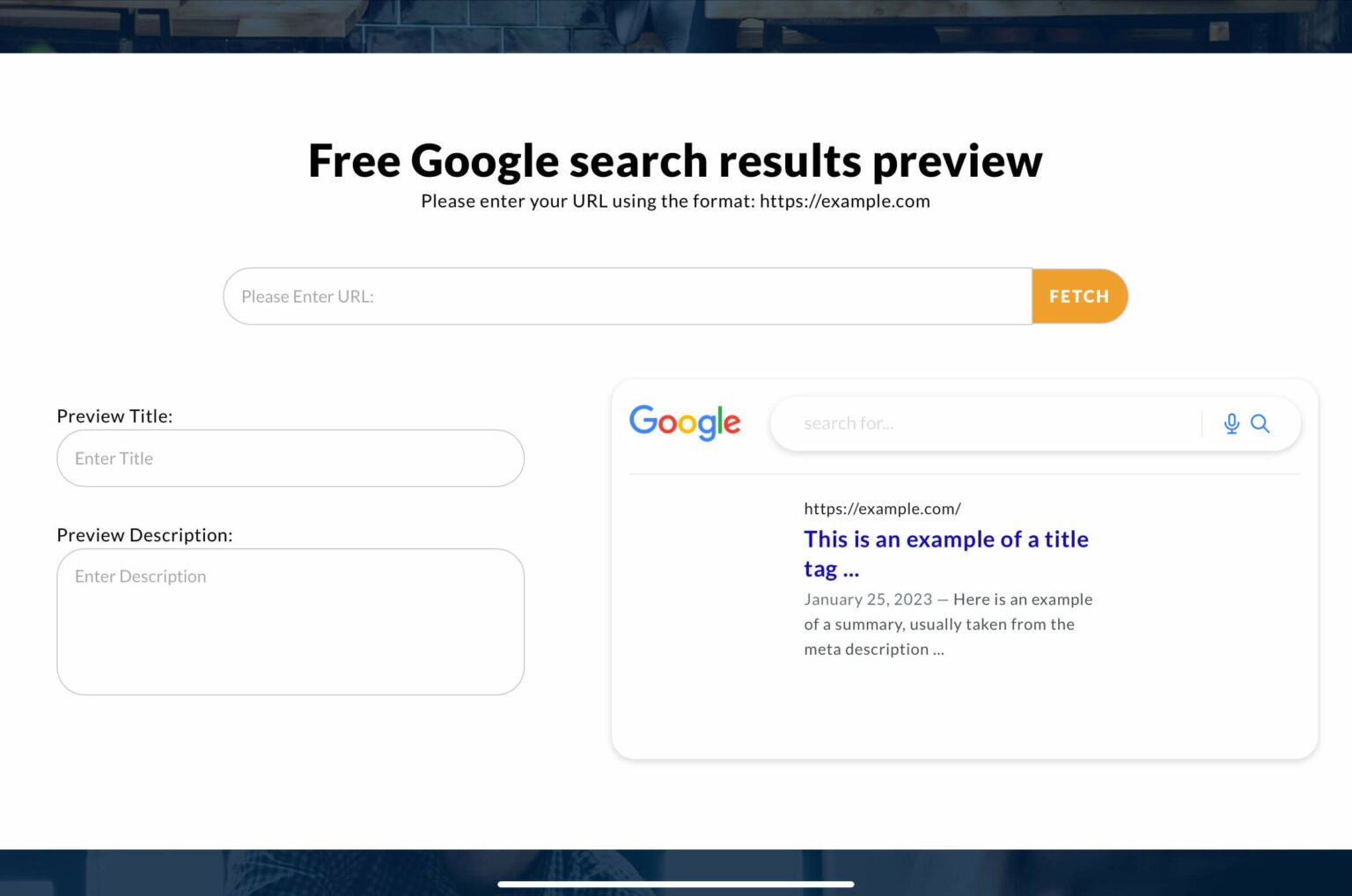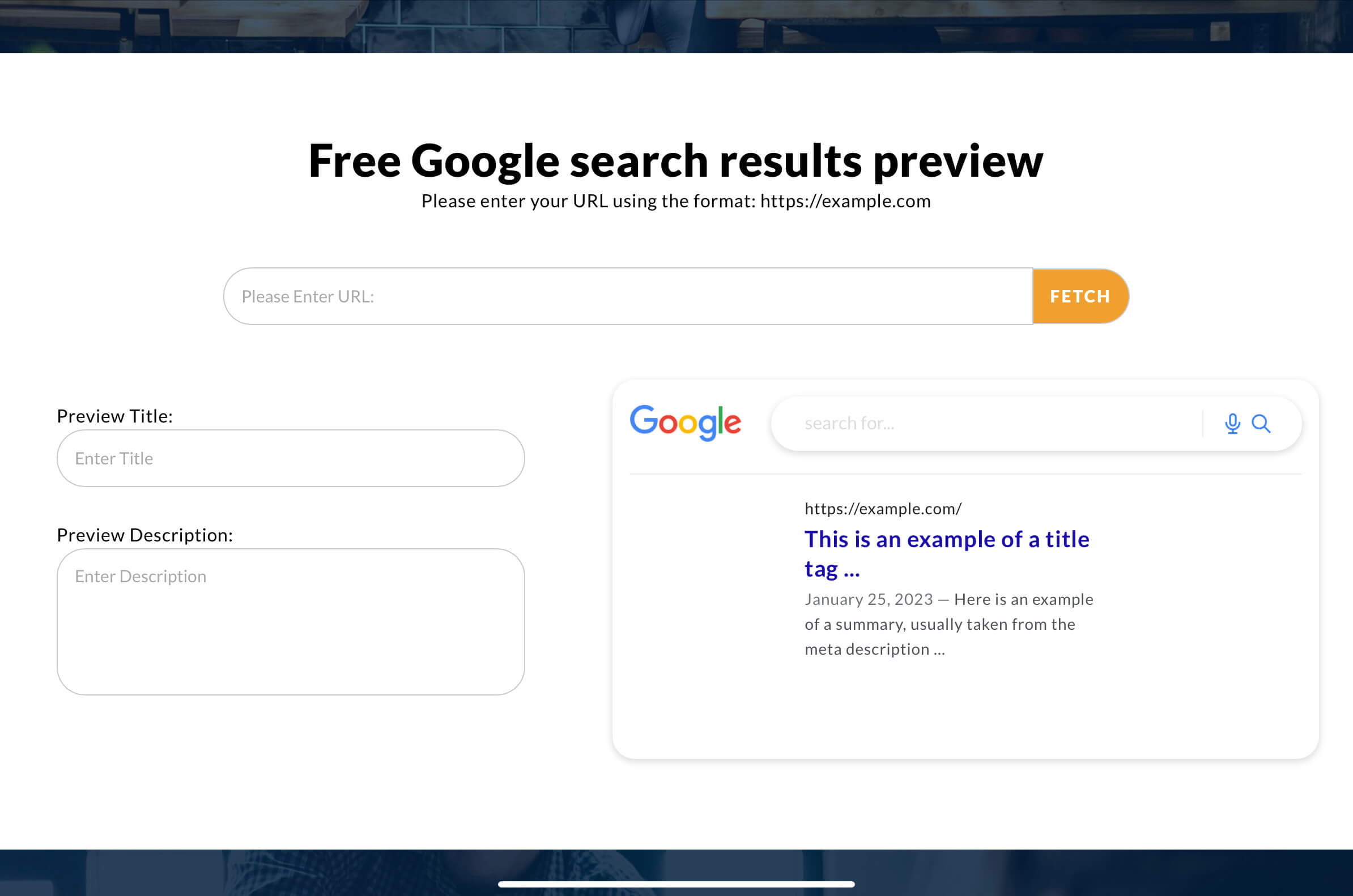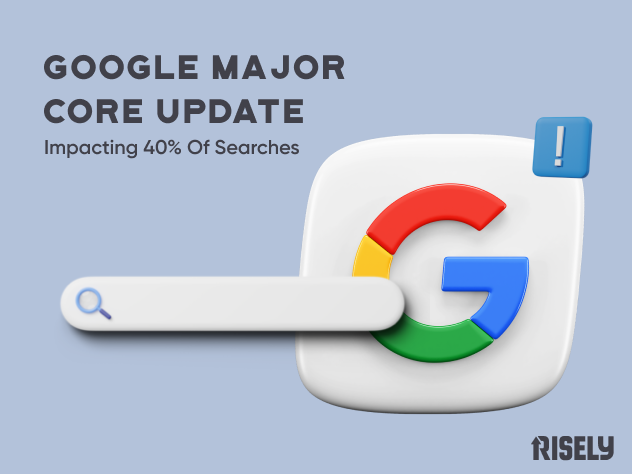
The Internet is overflowing with content. If it were a physical file cabinet, it would have busted years ago…and that’s an understatement. On top of that, people’s attention spans these days are shorter than ever, at least when it comes to a Google search.
And what do we know about Google search when it comes to marketing your business? You must make a good first impression on Google spiders to rank high on a Google search engine results page (SERP). Otherwise, you’re going to be the Waldo that never gets found.
You can say it all starts with your Google SERP snippet. Before we discuss Google SERP snippets, let’s learn more about Google SERP.
What is Google SERP?
When people conduct a Google search, Google will return a page(s) listing several results that are believed to have the answer to what the searcher is looking for, based on the Google spiders evaluation of the content on the pages. Also known as “crawlers” or “bots”, Google spiders will crawl or scan millions of websites to determine if a page is useful to the searcher based on search engine optimization (SEO) factors. Each page is known as the search engine results page (SERP). The listed results that are shown are formally known as Google SERP snippets.
https://youtu.be/PuLDTDe26hc
While the SEO of your content for the entire page significantly plays a role in ranking, your Google SERP snippet is the backbone of your success. That’s because it’s within these snippets where you need to make a good first impression – first, with the crawlers and second, with your audience.
SERP Snippet Components and Optimizing Them for Success
So, what is a SERP snippet composed of? A standard SERP snippet is composed of three things:
- URL
- Page title
- Meta description

All three elements are used by Google bots to assess your page to find out what it’s about and help it get ranked. We dissect them below.
URL
The URL of a page doesn’t hold much weight for ranking. It just has to be a unique link and obviously active, meaning the crawlers are able to crawl it. Believe it or not, your URLs should be optimized for the end user more so than a search engine bot. Google’s Senior Search Analyst, John Mueller, has beaten this point to death saying that Google uses “words in a URL as a very, very light weight factor” and once it’s been indexed, the words in the URL become pretty worthless for Google bots. Again, that’s once it’s been indexed.
Therefore, don’t neglect this part of your content marketing. Creating a short descriptive slug (about 3-5 words) for the URL can help Google spiders and your audience know what the page is about, which can help you get indexed and get more clicks, especially if it’s shared or linked to.
Page Title
Your page title, also known as a title link, is one of the very first things a Google spider will crawl. Although it’s also not used as a ranking factor, or rather direct ranking factor, writing a concise key-word rich title tag helps the crawler understand what your page is about and therefore getting it properly indexed.
Likewise, it needs to really shine when it shows up on a Google SERP. Your page title shows up as a big, bold blue link. Naturally, this pops out at the searcher first, thereby making a first impression on the user. If your page title has interested them enough, they will click or read the meta description to “seal the deal” on their decision to click.
Meta Description
Once again, keywords and keyphrases don’t have any direct ranking power in your meta description; however, Google bots do still scan it for assessment. So, writing a concise and descriptive description will help it get indexed and ultimately ranked.
The most important role of your meta description, however, is getting your audience to click it. It needs to be persuasive. Think of it as your sales pitch. A really, really short sales pitch that you have to execute in less than 10 seconds.
Google SERP Snippets Ranking Power
We already told you it doesn’t have any ranking power so let’s cut to the chase…
In the sense of direct ranking factors, Google says it doesn’t, but indirectly, it may. That’s because if it’s optimized well, it will get Google’s attention to first crawl it and then index it accordingly.
After this happens, clearly your chances of getting ranked near the top of the list has now increased for your targeted keyword/phrase for that page. Things get a whole lot more technical after a search is conducted, which is why Google continues to highlight the importance of optimized keyword-rich quality content because if the main substance of your page doesn’t give the reader any value, you can kiss your chances of being ranked high goodbye.
Now, if you did everything right with your on-page SEO, especially providing invaluable content to your readers that matches the intent of the search (keyword/phrase) you’re targeting, then your chances of ranking high on a Google SERP are even greater.
So, let’s say your page ranks on the first page of Google. This is your next chance, or “round 2” if you will, of making a good first impression. This time with the searcher.
It’s like asking or getting asked out by your crush and then meeting their parents. The Google bots are your crush. The searchers are the parents. Are you sweating yet?… Because we all know love is blind until the parental meet-and-greet.
Getting back to the point, if you make enticing Google SERP snippets then they’ll get clicked. And that, friends, is the golden ticket to populating positive outcomes for your page and your site. Clicks ultimately set the pace for your page metrics. It gives you traffic insights, bounce rate percentage, duration of session, events/engagements including social shares, transactions, followed links, etc.
All of this, starting with your clicks, can indirectly influence your ranking on Google SERPs. Take it from Udi Manber, Google’s former chief of search quality, who said:
“The ranking itself is affected by the click data. If we discover that, for a particular query, hypothetically, 80 percent of people click on Result No. 2 and only 10 percent click on Result No. I, after a while we figure out, well, probably Result 2 is the one people want. So we’ll switch it.”
You can read more about it in this Google Federal Trade Commission Report.
How Our Google SERP Snippet Preview Tool Can Help
Now that you know just how important your SERP snippets are, you’re going to love our Google SERP snippet preview tool! It’s 100% FREE – no strings attached – and so simple to use.

You simply enter your URL and the tool will autofill your metadata into the fields below so you can see how it’s showing up on Google SERPs. You can manually tweak your page title and meta description from here. For the record, because of its customizable capabilities you technically don’t need an URL to use this tool. Check it out now in all its glory.
Crafting click-worthy metadata involves a high level of skill and practice. So, here’s a little secret…
PRO TIP: Type your keyword in the Google search bar and click search. Analyze the first few organic snippets that are listed. Take notes on the position of their keywords in the text, what information are they revealing, what’s their call to action, etc.



